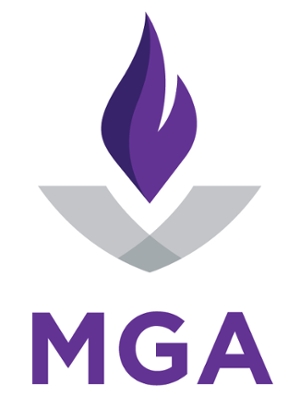6.19 Anti-Hazing Policy
I. Purpose
Middle Georgia State University (MGA) is committed to cultivating a safe and respectful campus environment that supports academic achievement and holistic personal development. In alignment with the Max Gruver Act (O.C.G.A. § 16-5-61) and the Stop Campus Hazing Act (20 U.S.C. § 1092(f)(1)(F)), this policy establishes MGA’s position on hazing. It aims to ensure all members of the University community understand their rights and responsibilities related to hazing prevention, reporting, and accountability. MGA affirms that hazing, in any form, is directly opposed to its mission and values and will not be tolerated.
II. Definitions
Hazing: Any intentional, knowing, reckless, or coercive act—whether individual or collective—occurring in connection with an individual’s initiation into, affiliation with, or continued membership in a student or school organization that, regardless of the individual’s willingness to participate which:
- Causes, or creates a substantial risk of, physical, emotional, or psychological harm;
- Involves behaviors including, but not limited to:
- Physical abuse (e.g., whipping, beating, striking, electric shocking, or applying harmful substances);
- Coerced consumption of substances (e.g., food, alcohol, drugs) that could likely risk vomiting, intoxication, or unconsciousness;
- Exposure to extreme conditions (e.g., sleep deprivation, confinement, extreme exertion);
- Sexual coercion or threats of bodily harm;
- Violation of any local, state, tribal, or federal law.
School or Student Organization: Any group, formally recognized or informally established, composed of MGA students or alumni, including fraternities, sororities, clubs, societies, athletic teams, bands, student governments, or “a group living together which has students or alumni as its principal members, including local affiliate organizations.”
III. Scope and Applicability
This policy applies to:
- All MGA students, faculty, staff, and affiliated third parties as defined above;
- All student and school organizations, whether officially recognized or not;
- Any events, programs, or activities conducted on or off campus affiliated with MGA;
- Incidents occurring during initiation, affiliation, or membership activities, regardless of perceived consen
IV. Policy Statement
MGA strictly prohibits all forms of hazing. Any individual or organization found to engage in, encourage, or enable hazing behavior is subject to disciplinary action under the Student Code of Conduct and may face criminal prosecution as permitted by state and federal law. Sanctions may include, but are not limited to, suspension, expulsion, or revocation of organizational recognition.
V. Reporting Hazing
MGA encourages all members of the University community to report known or suspected hazing. Reports may be submitted:
- Directly to the Office of Student Conduct,
- Anonymously via the MGA Ethics Hotline, or
- To any University official, who will route the concern appropriately.
Reports are handled in a prompt and confidential manner to the extent permitted by law.
VI. Retaliation Prohibition
Retaliation is prohibited against any person who:
- Reports hazing,
- Refuses to participate in hazing, or
- Participates in a hazing investigation.
Violators will be subject to disciplinary measures as outlined in Board of Regents Procedural Standards: Middle Georgia State University.
VII. Adjudication and Conduct Process
Alleged violations of this policy will be reviewed through the University’s conduct procedures, ensuring a fair and impartial process for all parties involved. Procedures are governed by the Hazing Conduct Procedures.
VII. Public Disclosure Requirements
In compliance with federal and state law, MGA will publicly disclose hazing violations within 15 calendar days of final adjudication. These disclosures will remain available for a minimum of five years and will include:
- The name of the student organization or school organization;
- The dates of the hazing incident(s);
- A summary of the findings, sanctions, and adjudications.
VIII. Hazing Prevention and Awareness Programs
Middle Georgia State University is committed to proactively preventing hazing through comprehensive, research-informed education and awareness initiatives. In accordance with the Stop Campus Hazing Act, MGA will implement campus-wide prevention programs designed to reach students, faculty, and staff.
These programs will include:
- Annual Faculty and Staff Training: Hazing prevention content, including recognition, reporting obligations, and intervention strategies, will be integrated into the University’s required annual training for all faculty and staff.
- Bystander Intervention Training: Equipping individuals with the skills to recognize and safely intervene in potential hazing situations.
- Workshops for Student Organizations, Greek Life, and Athletic Teams: Leadership of all registered student organizations and Greek life chapters are required to attend annual hazing prevention workshops. Additionally, all athletic coaches and team members must complete annual hazing prevention training. These sessions are designed to promote awareness of hazing behaviors, outline legal and institutional consequences, and provide constructive strategies for team building and group cohesion.
- Campus-Wide Student Training: Student Affairs will offer annual hazing prevention training to all students.
- Residential Life Workshops: Housing and Residence Life will conduct hazing prevention and awareness sessions for all students living in university-managed housing.
- O.C.G.A. § 16-5-61 – The Max Gruver Act
- The Stop Campus Hazing Act (SCHA) 20 U.S.C. § 1092(f) (2024)
- MGA Student Code of Conduct: Hazing Conduct Procedures
